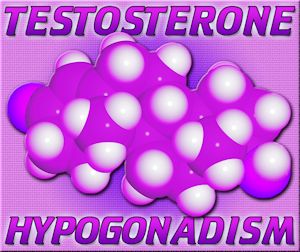Introduction
Testosterone, a pivotal hormone in the male body, is widely recognized for its influence on various physiological processes, including muscle development, libido, and mood regulation. However, its impact on hair growth and loss remains a subject of significant interest and concern among American males. This article delves into a longitudinal study that examines the intricate relationship between testosterone levels and hair dynamics, offering valuable insights into the mechanisms behind hair growth and loss.
The Role of Testosterone in Hair Growth
Testosterone plays a crucial role in the hair growth cycle, particularly during the anagen phase, where hair actively grows. The hormone's presence is essential for maintaining the vigor and thickness of scalp hair. In the study, it was observed that optimal levels of testosterone were associated with robust hair growth, suggesting that the hormone supports the proliferation of hair follicle cells. This finding underscores the importance of maintaining balanced testosterone levels to promote healthy hair growth among American males.
Testosterone and Hair Loss: The DHT Connection
While testosterone can promote hair growth, its conversion to dihydrotestosterone (DHT) by the enzyme 5-alpha-reductase can lead to hair loss. DHT is a more potent androgen that binds to receptors in hair follicles, causing them to shrink and eventually leading to the cessation of hair growth. The study highlighted a significant correlation between elevated DHT levels and the onset of male pattern baldness, a common concern among American males. This insight into the DHT pathway provides a clearer understanding of why some men experience hair thinning and loss despite having normal or even high testosterone levels.
Longitudinal Observations and Patterns
The longitudinal aspect of the study allowed for the observation of hair growth and loss patterns over time in relation to fluctuating testosterone levels. Participants were monitored for several years, and data indicated that men with consistently high testosterone levels did not necessarily experience hair loss if their DHT levels remained within normal ranges. Conversely, those with a genetic predisposition to higher DHT conversion rates were more likely to develop baldness. These findings emphasize the importance of monitoring not just testosterone but also DHT levels to predict and manage hair loss effectively.
Interventions and Management Strategies
Understanding the dual role of testosterone in hair dynamics has led to the development of various interventions aimed at managing hair loss. The study explored the effectiveness of treatments such as finasteride, which inhibits the conversion of testosterone to DHT, and minoxidil, which promotes hair growth. Participants who used these treatments reported significant improvements in hair density and growth, suggesting that targeted interventions can mitigate the adverse effects of DHT on hair follicles. These strategies offer hope to American males seeking to maintain their hair health despite hormonal challenges.
Lifestyle Factors and Hormonal Balance
Beyond medical interventions, the study also examined the impact of lifestyle factors on testosterone levels and, consequently, hair health. Regular exercise, a balanced diet, and adequate sleep were found to contribute to maintaining optimal testosterone levels, which in turn supported healthier hair growth. Conversely, stress, poor diet, and sedentary behavior were linked to hormonal imbalances that could exacerbate hair loss. These findings highlight the importance of a holistic approach to managing testosterone levels and promoting hair health among American males.
Conclusion
The longitudinal study on the influence of testosterone on hair growth and loss provides a comprehensive understanding of the hormone's dual role in hair dynamics. By elucidating the mechanisms behind testosterone's effects and the critical role of DHT, the study offers valuable insights for American males concerned about their hair health. Effective management strategies, including medical interventions and lifestyle adjustments, can help mitigate the risk of hair loss and promote robust hair growth, enhancing overall quality of life.
Contact Us Today For A Free Consultation

- Genetics and Testosterone: Interplay, Influences, and Personalized Health Strategies [Last Updated On: February 18th, 2025] [Originally Added On: February 18th, 2025]
- Stoking Man’s Mettle: An In-Depth Look at Testosterone [Last Updated On: February 25th, 2025] [Originally Added On: February 25th, 2025]
- Unraveling the Testosterone Enigma: Navigating the Masculine Hormone's Impact on Life [Last Updated On: February 26th, 2025] [Originally Added On: February 26th, 2025]
- Unraveling Spectrum: Transitioning Through the Testosterone Timeline [Last Updated On: February 27th, 2025] [Originally Added On: February 27th, 2025]
- Unveiling the Realm Beyond Muscles: Illuminating the Comprehensive Merits of Optimum Testosterone Levels [Last Updated On: February 28th, 2025] [Originally Added On: February 28th, 2025]
- Unraveling the Testosterone Narrative: Distinguishing Truths from Fallacies [Last Updated On: February 28th, 2025] [Originally Added On: February 28th, 2025]
- Unlocking Vitality and Vigor: Unfolding the Secrets of Testosterone [Last Updated On: March 1st, 2025] [Originally Added On: March 1st, 2025]
- Empowering the Androgenic Alchemy: Natural Diet Strategies to Amplify Testosterone Secretion [Last Updated On: March 2nd, 2025] [Originally Added On: March 2nd, 2025]
- Optimizing Testosterone Levels Through Exercise: Mechanisms, Effective Workouts, and Age-Related Impacts [Last Updated On: March 3rd, 2025] [Originally Added On: March 3rd, 2025]
- Impact of Testosterone on Mental Health and Cognitive Functions [Last Updated On: March 4th, 2025] [Originally Added On: March 4th, 2025]
- Understanding Testosterone's Role in Male Health and Development Across Lifespan [Last Updated On: March 5th, 2025] [Originally Added On: March 5th, 2025]
- Understanding Testosterone's Role in Male Health and Development Across the Lifespan [Last Updated On: March 6th, 2025] [Originally Added On: March 6th, 2025]
- Optimizing Testosterone Levels Naturally: Diet, Exercise, Sleep, Stress, and Lifestyle Strategies [Last Updated On: March 7th, 2025] [Originally Added On: March 7th, 2025]
- Advancements in Testosterone Therapy: Enhancing Men's Health and Quality of Life [Last Updated On: March 8th, 2025] [Originally Added On: March 8th, 2025]
- Optimizing Male Health: Managing Testosterone Decline for Vitality and Well-Being [Last Updated On: March 9th, 2025] [Originally Added On: March 9th, 2025]
- Testosterone's Vital Role in Women's Health: Insights for American Males [Last Updated On: March 11th, 2025] [Originally Added On: March 11th, 2025]
- Unlocking the Potential: The Future of Hormonal Health Through Testosterone Research [Last Updated On: March 12th, 2025] [Originally Added On: March 12th, 2025]
- The Nocturnal Boost: How Sleep Fuels Testosterone Production in American Men [Last Updated On: March 12th, 2025] [Originally Added On: March 12th, 2025]
- Navigating Hormonal Harmony: The Interplay of Stress, Cortisol, and Testosterone in American Men [Last Updated On: March 13th, 2025] [Originally Added On: March 13th, 2025]
- Unleashing Potential: The Role of Testosterone in Athletic Performance Among American Males [Last Updated On: March 15th, 2025] [Originally Added On: March 15th, 2025]
- Understanding and Managing Low Testosterone in American Men: Symptoms, Causes, and Treatments [Last Updated On: March 19th, 2025] [Originally Added On: March 19th, 2025]
- Testosterone Enhancement: Supplements, Natural Remedies, and Medical Interventions for American Males [Last Updated On: March 19th, 2025] [Originally Added On: March 19th, 2025]
- Testosterone's Impact on Cardiovascular Health in American Males: A Comprehensive Overview [Last Updated On: March 19th, 2025] [Originally Added On: March 19th, 2025]
- Testosterone's Role in Enhancing Workplace Productivity and Drive for American Males [Last Updated On: March 19th, 2025] [Originally Added On: March 19th, 2025]
- Environmental Toxins' Impact on Male Testosterone Levels and Health [Last Updated On: March 19th, 2025] [Originally Added On: March 19th, 2025]
- Testosterone's Impact on Mood, Memory, and Motivation in American Males [Last Updated On: March 19th, 2025] [Originally Added On: March 19th, 2025]
- Testosterone's Crucial Role in Immune Health for American Males [Last Updated On: March 20th, 2025] [Originally Added On: March 20th, 2025]
- Testosterone Revolution: Redefining Masculinity and Enhancing Men's Health in America [Last Updated On: March 21st, 2025] [Originally Added On: March 21st, 2025]
- Testosterone's Role in Bone Health: Strategies for American Males to Prevent Osteoporosis [Last Updated On: March 21st, 2025] [Originally Added On: March 21st, 2025]
- Testosterone's Role in Male Libido: Understanding and Enhancing Sexual Vitality [Last Updated On: March 21st, 2025] [Originally Added On: March 21st, 2025]
- Testosterone's Impact on Metabolism and Fat Burning in American Males [Last Updated On: March 21st, 2025] [Originally Added On: March 21st, 2025]
- Testosterone's Role in Muscle Recovery: Mechanisms and Optimization Strategies [Last Updated On: March 22nd, 2025] [Originally Added On: March 22nd, 2025]
- Resistance Training Boosts Testosterone: Benefits and Protocols for American Males [Last Updated On: March 22nd, 2025] [Originally Added On: March 22nd, 2025]
- Testosterone's Impact on Ambition and Competition in American Males [Last Updated On: March 23rd, 2025] [Originally Added On: March 23rd, 2025]
- Navigating Testosterone Concerns: Preparation, Communication, and Treatment Options with Your Doctor [Last Updated On: March 23rd, 2025] [Originally Added On: March 23rd, 2025]
- Testosterone and Sleep: Enhancing Health in American Males Through Better Sleep [Last Updated On: March 23rd, 2025] [Originally Added On: March 23rd, 2025]
- Urban vs. Rural Living: Impacts on Testosterone Levels in American Males [Last Updated On: March 24th, 2025] [Originally Added On: March 24th, 2025]
- Outdoor Activities Boost Testosterone: Nature's Impact on Men's Health [Last Updated On: March 24th, 2025] [Originally Added On: March 24th, 2025]
- Key Nutrients Boost Testosterone: Vitamin D, Zinc, Magnesium, B6 for American Males [Last Updated On: March 24th, 2025] [Originally Added On: March 24th, 2025]
- Meditation Boosts Testosterone: A Holistic Approach for American Males' Health [Last Updated On: March 24th, 2025] [Originally Added On: March 24th, 2025]
- Testosterone's Impact on Cognitive Function in American Males Across Age Groups [Last Updated On: March 24th, 2025] [Originally Added On: March 24th, 2025]
- Optimizing Testosterone: The Impact of Rest and Nutrition on American Males' Health [Last Updated On: March 24th, 2025] [Originally Added On: March 24th, 2025]
- Optimizing Testosterone: Nutrition, Exercise, Sleep, and Stress Management for American Men [Last Updated On: March 25th, 2025] [Originally Added On: March 25th, 2025]
- Boosting Testosterone: American Men's Guide to Positivity and Mental Health [Last Updated On: March 25th, 2025] [Originally Added On: March 25th, 2025]
- Hormonal Harmony: Testosterone's Interplay and Balance Strategies for American Males [Last Updated On: March 25th, 2025] [Originally Added On: March 25th, 2025]
- Testosterone Levels in American Men: Factors, Impacts, and Optimization Strategies [Last Updated On: March 25th, 2025] [Originally Added On: March 25th, 2025]
- Low Testosterone's Economic Impact: Healthcare Costs, Productivity, and Social Well-being in the U.S. [Last Updated On: March 25th, 2025] [Originally Added On: March 25th, 2025]
- Testosterone Tracking: Apps and Wearables Revolutionize Men's Health Monitoring [Last Updated On: March 25th, 2025] [Originally Added On: March 25th, 2025]
- Testosterone's Multifaceted Impact on American Men's Mental Health [Last Updated On: March 25th, 2025] [Originally Added On: March 25th, 2025]
- Testosterone's Vital Role in Cardiovascular Health for American Males [Last Updated On: March 25th, 2025] [Originally Added On: March 25th, 2025]
- Understanding Andropause: Symptoms, Testosterone's Role, and Management Strategies [Last Updated On: March 25th, 2025] [Originally Added On: March 25th, 2025]
- Social Dynamics and Testosterone Levels in American Males: A Comprehensive Analysis [Last Updated On: March 25th, 2025] [Originally Added On: March 25th, 2025]
- Boost Testosterone with Resistance Bands: A Home Workout Guide for Men [Last Updated On: March 26th, 2025] [Originally Added On: March 26th, 2025]
- Modern Diets and Testosterone: Insights for American Men's Health [Last Updated On: March 26th, 2025] [Originally Added On: March 26th, 2025]
- Testosterone's Influence on Risk-Taking in American Males: Neurobiological Insights [Last Updated On: March 26th, 2025] [Originally Added On: March 26th, 2025]
- Music and Art: Natural Boosters for Testosterone in American Males [Last Updated On: March 26th, 2025] [Originally Added On: March 26th, 2025]
- Revolutionizing Men's Health: Advances in Testosterone Optimization Technologies [Last Updated On: March 27th, 2025] [Originally Added On: March 27th, 2025]
- Testosterone's Role in Enhancing Mental Resilience Among American Males [Last Updated On: March 27th, 2025] [Originally Added On: March 27th, 2025]
- Testosterone Replacement Therapy: Benefits, Risks, and Realities for American Males [Last Updated On: March 27th, 2025] [Originally Added On: March 27th, 2025]
- Testosterone Management in American Males with Chronic Diseases: Insights and Strategies [Last Updated On: March 27th, 2025] [Originally Added On: March 27th, 2025]
- Intermittent Fasting: Boosting Testosterone and Health in American Males [Last Updated On: March 27th, 2025] [Originally Added On: March 27th, 2025]
- Testosterone and Athletic Performance: Myths, Facts, and Future Research for American Males [Last Updated On: March 27th, 2025] [Originally Added On: March 27th, 2025]
- Testosterone's Impact on Body Image and Self-Esteem in American Males [Last Updated On: March 27th, 2025] [Originally Added On: March 27th, 2025]
- Personalized Medicine Revolutionizes Testosterone Therapy for American Males [Last Updated On: March 27th, 2025] [Originally Added On: March 27th, 2025]
- Testosterone's Role in Longevity: Optimization and Therapy Insights [Last Updated On: March 28th, 2025] [Originally Added On: March 28th, 2025]
- Testosterone Health for American Males: Balancing Work and Wellness Strategies [Last Updated On: March 28th, 2025] [Originally Added On: March 28th, 2025]
- Declining Testosterone Levels in American Males: Trends, Causes, and Health Strategies [Last Updated On: March 28th, 2025] [Originally Added On: March 28th, 2025]
- Testosterone's Role in American Male Health: Understanding, Testing, and Treatment [Last Updated On: March 28th, 2025] [Originally Added On: March 28th, 2025]
- Testosterone Research: From Lab Discoveries to Clinical Impacts on American Men's Health [Last Updated On: March 29th, 2025] [Originally Added On: March 29th, 2025]
- Testosterone's Impact on Immune Health in American Men: Insights and Management Strategies [Last Updated On: March 30th, 2025] [Originally Added On: March 30th, 2025]
- Testosterone's Impact on Skin, Hair Health: A Guide for American Men [Last Updated On: March 30th, 2025] [Originally Added On: March 30th, 2025]
- Gut Health and Testosterone: Optimizing Hormonal Balance in American Males [Last Updated On: March 30th, 2025] [Originally Added On: March 30th, 2025]
- Body Composition's Impact on Testosterone Levels in American Males [Last Updated On: April 1st, 2025] [Originally Added On: April 1st, 2025]
- Testosterone's Crucial Role in Male Sexual Health and Well-being for American Men [Last Updated On: April 1st, 2025] [Originally Added On: April 1st, 2025]
- Alcohol and Smoking: Impact on Testosterone Levels in American Males [Last Updated On: April 2nd, 2025] [Originally Added On: April 2nd, 2025]
- Testosterone's Evolutionary Impact on Social Dominance in American Males [Last Updated On: April 6th, 2025] [Originally Added On: April 6th, 2025]
- Acupuncture: A Natural Approach to Balancing Testosterone in American Males [Last Updated On: April 7th, 2025] [Originally Added On: April 7th, 2025]
- Effective Strategies for American Men to Boost Testosterone Naturally and Safely [Last Updated On: April 9th, 2025] [Originally Added On: April 9th, 2025]
- Boost Testosterone Naturally: Mindful Living Practices for American Men [Last Updated On: April 9th, 2025] [Originally Added On: April 9th, 2025]
- HIIT Boosts Testosterone: Benefits and Practical Guide for American Males [Last Updated On: April 9th, 2025] [Originally Added On: April 9th, 2025]
Word Count: 616




















